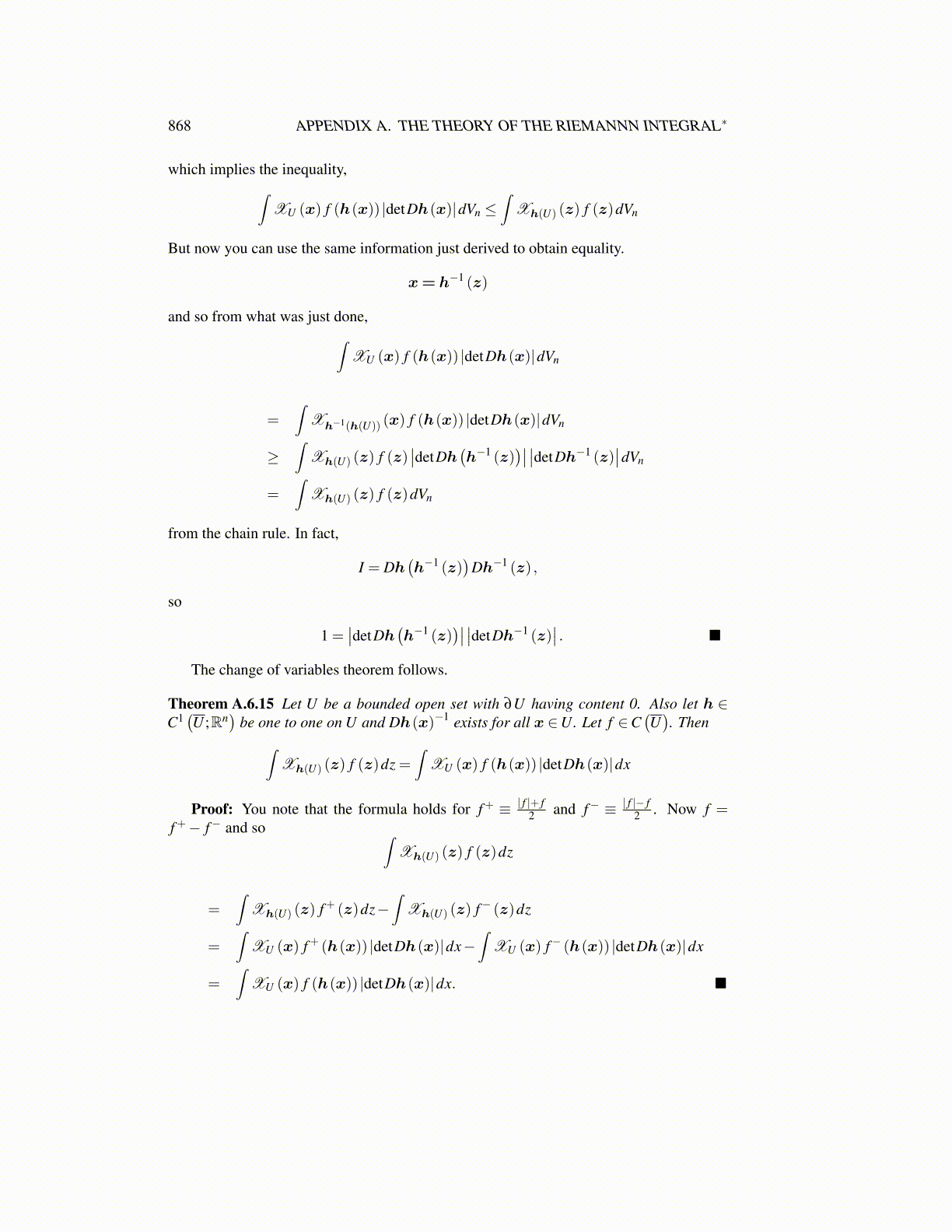
868 APPENDIX A. THE THEORY OF THE RIEMANNN INTEGRAL∗
which implies the inequality,∫XU (x) f (h(x)) |detDh(x)|dVn ≤
∫Xh(U) (z) f (z)dVn
But now you can use the same information just derived to obtain equality.
x= h−1 (z)
and so from what was just done,∫XU (x) f (h(x)) |detDh(x)|dVn
=∫
Xh−1(h(U)) (x) f (h(x)) |detDh(x)|dVn
≥∫
Xh(U) (z) f (z)∣∣detDh
(h−1 (z)
)∣∣ ∣∣detDh−1 (z)∣∣dVn
=∫
Xh(U) (z) f (z)dVn
from the chain rule. In fact,
I = Dh(h−1 (z)
)Dh−1 (z) ,
so
1 =∣∣detDh
(h−1 (z)
)∣∣ ∣∣detDh−1 (z)∣∣ . ■
The change of variables theorem follows.
Theorem A.6.15 Let U be a bounded open set with ∂U having content 0. Also let h ∈C1(U ;Rn
)be one to one on U and Dh(x)−1 exists for all x ∈U. Let f ∈C
(U). Then∫
Xh(U) (z) f (z)dz =∫
XU (x) f (h(x)) |detDh(x)|dx
Proof: You note that the formula holds for f+ ≡ | f |+ f2 and f− ≡ | f |− f
2 . Now f =f+− f− and so ∫
Xh(U) (z) f (z)dz
=∫
Xh(U) (z) f+ (z)dz−∫
Xh(U) (z) f− (z)dz
=∫
XU (x) f+ (h(x)) |detDh(x)|dx−∫
XU (x) f− (h(x)) |detDh(x)|dx
=∫
XU (x) f (h(x)) |detDh(x)|dx. ■